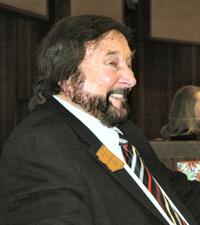PHOENIX — A state lawmaker is declaring his own war against the governor’s war on opioids.
Rep. Jay Lawrence, a Scottsdale Republican, wants to make it illegal for any state or local government or agency to limit the amount of regulated painkillers that physicians can prescribe at any one time. He said that’s an issue best left to doctors and their patients.
The timing of his bill, HB 2030, comes as Gov. Doug Ducey prepares his own legislation — going in the opposite direction.
State health Director Cara Christ said earlier this year she would limit prescriptions for what she calls “opioid naive” patients — those who have not been taking opiates in the past three to six months — to a pill supply of no more than five days.
Christ also said Arizona law should have a limit on daily dosages to less than 90 “morphine milligram equivalents,” or MMEs. That’s the same as 90 milligrams of hydrocodone or 60 milligrams of oxycodone.
The risk of overdose doubles above 50 MMEs a day, say the U.S. Centers for Disease Control and Prevention.
Lawrence said Ducey is off base.
“I do not believe that government can step in to tell the medical profession and tell medical doctors what is correct to prescribe,” he said.
Lawrence’s proposed legislation drew a sharp response from gubernatorial press aide Daniel Scarpinato, who said opioid abuse has reached epidemic proportions and state intervention is necessary.
“In the last year, we’ve had hundreds of people die ... from opioid-related overdoses,” he said. “That’s a huge number of people.”
Scarpinato said the problem is getting worse.
“So, absolutely, something more needs to be done here,” he said.
He said Ducey isn’t seeking to impose some restrictions over the objections of doctors, as many physicians are involved in crafting a final plan.
That’s also the position of the Arizona Medical Association.
The association is “committed to actively participating in the governor’s stakeholder process and focusing on the comprehensive legislation expected from it,” said Pele Peacock Fischer, its vice president for policy and political affairs.
Lawrence said he is not disputing that there is a problem. But he’s not convinced hard and fast limits are appropriate.
Instead, he said, the key is physician oversight.
“I believe we have enough disciplines in place,” he said. “And I want to see those disciplines in place so we know who is prescribing, how much they’re prescribing, and if someone is shopping doctors.”
Scarpinato said the governor believes that oversight of doctors, by itself, is not enough.
He pointed to reports that four doctors in Mohave County prescribed 6 million doses of opioids in one year.
One of the doctors wrote 20,232 prescriptions amounting to more than 1.9 million pills, or about 7,350 a day.
That’s in a county with about 210,000 people, though there is some question whether the proximity to Las Vegas figured into the prescriptions.
“We need to give law enforcement the tools in law to be able to hold them accountable,” Scarpinato said.
Scarpinato acknowledged that what Ducey wants appears to be at odds with his repeated calls for less regulation.
“We’re not talking about blow-drying hair,” he said. “We’re talking about drugs that can be miracle drugs for some but are very addictive and we’ve seen can lead to death.”




